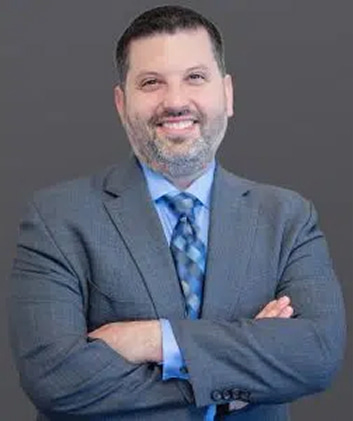Quick Recap:
Florida hospitals and doctors are legally required to honor valid living wills, per Chapter 765. However, confusion, poor documentation, or moral objections can delay compliance. Boca Raton families should ensure clear execution, communicate with providers, and know how to escalate if medical wishes are ignored.

You made a living will for a reason. But what happens if your doctor won’t follow it? In Florida, medical providers must follow legally valid living wills. However, misunderstandings, timing issues, or ethical objections can create real barriers.
Knowing your rights and what to do if they’re ignored can spare your family pain, delay, and conflict. If you live in Boca Raton and Palm Beach County, here’s what you need to know to ensure your living will is followed when it matters most.
What The Law Requires Under Florida Statutes Chapter 765
Florida law protects your right to control your end-of-life medical decisions, even when you can’t speak for yourself.
Florida Statute § 765.104(1)
“Any competent adult may make a written declaration… directing the withholding or withdrawal of life-prolonging procedures in the event such person has a terminal condition, an end-stage condition, or is in a persistent vegetative state.”
Provider Obligations Under Chapter 765
- Review the living will when a patient becomes incapacitated.
- Confirm the patient meets one of the three qualifying conditions.
- Consult a second physician to certify the diagnosis.
- Follow the patient’s stated instructions unless legally exempted.
Hospitals and physicians in Florida must honor valid living wills unless a narrow exception applies.
Reasons A Living Will Might Be Delayed Or Disregarded
While most healthcare providers in Boca Raton try to respect patients’ wishes, problems can arise. These are the most common:
Document Not Immediately Available
Hospitals need a copy of the living will in hand. If there’s no copy given, they default to life-saving measures. Verbal statements by the family may not be enough.
Tip:
Keep your living will on file with your primary care doctor, local hospital, and designated health surrogate.
Unclear Language Or Conflicting Directives
A living will with vague or contradictory language can lead to confusion during a medical crisis. If your instructions aren’t clear, doctors and family members may hesitate or misinterpret your wishes.
Conflicts between your living will and health care surrogate designation can also create delays. Additionally, out-of-state forms may not comply with Florida law, making them difficult for providers to honor.
Solution:
Use a Florida-specific living will form, or better yet, have one drafted by a Florida estate attorney.
Ethical Or Religious Objections From Staff
In some cases, a doctor or nurse may decline to follow your living will due to personal, moral, or religious beliefs. This can occur even when your directive is valid.
Florida law permits such objections, but it also requires the objecting provider to transfer your care. They must ensure that another qualified medical professional will honor your instructions without further delay.
Florida Statute § 765.1105(2):
If a healthcare provider cannot comply, “the provider must transfer the patient to another provider willing to honor the directive.”
Example
A Palm Beach County physician declines to withdraw a feeding tube based on personal beliefs. The hospital must then transfer care to another provider who will follow the living will.
No one can be forced to act against their conscience, but they can’t stop others from honoring your legal rights.
What To Do If A Hospital Ignores Your Living Will
If you or a loved one is in crisis and hospitals and doctors ignore a living will, here’s how to respond quickly and firmly.
Step 1: Ask To Speak With The Attending Physician
Politely but firmly request a review of the living will. Confirm that the medical condition meets statutory triggers. Clarify whether a second physician has been consulted.
Step 2: Elevate To The Hospital Ethics Committee
All major South Florida hospitals, like Boca Raton Regional Hospital or Delray Medical Center, have ethics review panels. These committees mediate disputes about end-of-life care.
Step 3: Provide A Copy Of All Advance Directives
Include your living will, designation of healthcare surrogate, and any relevant documentation. Point out specific instructions in plain English.
Step 4: Ask For Transfer Of Care If Necessary
If the current doctor won’t comply, request a transfer to one who will. Florida law supports your right to be treated by someone willing to honor your directive.
Step 5: Involve Legal Counsel If Needed
A probate attorney can communicate with the hospital or file emergency motions if your wishes are blocked. Some families use court orders to enforce or validate directives.
In Boca Raton, decisive action can keep medical decisions in your hands, not a hospital’s.
How To Prevent Your Living Will From Being Ignored
The best time to ensure hospitals and doctors follow your living will is before a medical emergency ever happens.
Best Practices For Boca Raton Residents
- Use Florida-compliant language and execution (Chapter 765).
- Sign with two adult witnesses, one not related to you.
- Store the original in a known, safe location.
- Give copies to your primary care doctor and designated surrogate.
- Carry a wallet card that says, “I have a living will” with contact info.
Important Tip
Upload a digital copy to your patient portal at your hospital or health network. Many South Florida systems, like Baptist Health, offer secure upload options.
Prepared families make the path easier when emotions run high.
What Happens If There Is No Living Will?
If there’s no living will or if it’s invalid, Florida law imposes a decision-making hierarchy.
Florida’s Default Decision-Makers
- Court-appointed guardian.
- Spouse.
- Adult child.
- Parent.
- Adult sibling.
- Other adult relative.
Risks Of Relying On The Default
If you don’t have a living will, Florida law assigns a default health care proxy. That person may not fully understand or respect your wishes during a medical crisis or end-of-life situation.
Without clear guidance, family members might argue over what to do. In these cases, doctors may default to aggressive, life-sustaining treatments even if you would’ve preferred comfort care or a natural death.
Example
At a Boca Raton hospital, siblings argued over life support for their mother. Without a valid living will, care continued until a court intervened, two weeks and $18,000 in costs later.
Without written guidance, medical decisions often cause family conflict and extended suffering.
How Florida Hospitals Handle Advance Directives
Most major hospitals in Palm Beach County have protocols to honor living wills, but practices vary, especially in fast-paced or emergency settings.
Notable Facilities
- Boca Raton Regional Hospital (part of Baptist Health): Offers advance directive forms and patient portal uploads.
- Delray Medical Center: Has a dedicated ethics committee for end-of-life disputes.
- West Boca Medical Center: Recommends submitting living wills during admission or outpatient prep.
Best Practices At These Hospitals
Submit your living will before elective procedures. Notify admitting staff that your directive is on file. Ask your health care surrogate to confirm compliance during care.
Being proactive with local hospitals ensures your living will doesn’t get lost in a drawer.
Why Families Should Discuss Living Wills In Advance
No document replaces a conversation. Florida law empowers you to decide, but your family must understand and support those decisions.
Why Advance Conversations Matter
- Helps your surrogate feel confident advocating for your wishes.
- Reduces guilt or confusion during emergencies.
- Ensures family members won’t disagree at the bedside.
How To Start The Conversation
- Use a holiday or family gathering to introduce the topic.
- Share why you created your living will and what it means to you.
- Encourage others to make their plans too.
In Boca Raton, the families that talk ahead of time are the ones who find peace, not conflict, in a crisis.
Questions About Living Will Enforcement
Families often wonder what happens if a living will is challenged or delayed. These FAQs clarify how Florida law protects your rights and what Boca Raton families can do next.
Can A Doctor In Florida Legally Refuse My Living Will?
Yes, for personal, moral, or religious reasons. But the hospital must transfer your care to another willing provider.
What If My Living Will Isn’t On File During An Emergency?
Hospitals default to life-saving treatment unless there’s a valid directive. Keep copies easily accessible and inform your surrogate.
Do Florida Hospitals Always Honor Living Wills?
Most do, but confusion or poor communication can cause delays. Clear documentation and planning help ensure timely compliance.
What If My Family Disagrees With My Living Will?
If your document is valid and meets legal conditions, doctors must follow it, even if family members object.
Can I Sue A Hospital That Ignores My Living Will?
Possibly. You or your family may have a claim for emotional distress, unwanted treatment, or other damages. Legal counsel is vital.

When your life is on the line, your legal planning must be clear and enforceable.
We Can Help Make Your Living Will Legally Strong
A living will is only powerful if it’s followed. At Boca Raton Probate Attorneys, we make sure your directives are clear, Florida-compliant, and respected when it matters.
We guide families across Palm Beach County through drafting, updating, and enforcing living wills and healthcare directives. If you’ve faced resistance from a provider or want to prevent future confusion, we can help.
Take control of your healthcare decisions with confidence and clarity.




